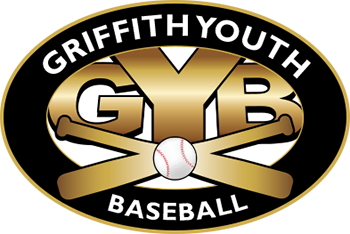
Safety and First Aid
Prevention of injuries is always the ultimate goal but sometimes things happen. In that case, immediate treatment may be required. In any case, be sure to let your players’ parents know to inform you of any situations or medical concerns.
Insect Stings
Bee and wasp are usually not much concern but allergies may occur, resulting in a life-threatening situation. Make sure to know if any of your players are allergic so you can be prepared, whether that means notifying the parent, calling 911, or performing aid on your own (ie administering an Epi Pen).
Simple Contusions
A scrape, bruise, or slight hit (by the ball, running into a player or object) doesn’t require too much medical knowledge. Depending on the severity, resting and icing is usually sufficient. Compression and elevation may be needed to more severe cases. Be sure to notify the parent of any care that may be needed. In case of a head injury, notify the parent immediately and watch for signs of a concussion (headache or ‘pressure’ in the head, nausea/vomiting, balance/dizziness problems, sensitivity to light or noise, delayed responses, slurres speech, confusion, memory problems). If a player loses consciousness, call 911 immediately and follow their instruction.
Sprains and Small Joint Injuries
Twisting an ankle is the most common sprain, however, it can happen to any area on the body. If a sprain occurs, have the player apply ice and elevation. Assist the player with walking as necessary. If an injury to a finger occurs, try to stabalize the digit and secure it to another finger to help minimize movement and act as a temporary splint. Apply ice while notifying the parent for further care.
Fractures
A fracture requires more care and treatment. A fracture can sometimes be heard as a popping sound or can be seen under the skin. Stabilize the player and the fractured area and notify the parent immediately of the situation. If the fracture is open (broken skin) call 911 immediately and follow their instruction.
Facial Injuries
An injury to the face can be minor or serious. It’s impossible to tell due to so many bones and muscles so it is important to observe the situation. Do not apply pressure to any eye injuries. In case of something like a fat-lip or getting hit with the ball, apply ice immediately. Treat a nosebleed by pinching right above the nostrils for at least 10-15 minutes while leaning forward and breathing through the mouth to avoid blood draining down the throat. Contact the parents immediately in mild cases or 911 in severe situations. Watch for signs of a concussion (headache or ‘pressure’ in the head, nausea/vomiting, balance/dizziness problems, sensitivity to light or noise, delayed responses, slurres speech, confusion, memory problems).
Heat
The severity of symptoms from heat can be cramps, exhaustion, or stroke. In cases of suspected heat stroke, call 911. Heat cramps can occur in the legs, arms, or abdomen during or after exercise. They are usually due to dehydration and can easily be remedied by a break, massaging the area, and sipping adequate amounts of water and electrolytes. Don’t chug. Exhaustion can happen from excessive sweating and causes body temperature to rise. Nausea, vomiting, dizziness, fainting, confusion, or lack of attention can be symptoms. If exhaustion happens, stop the exercise, remove equipment, and move the player to a cool area and use fans or ice to cool the body down. If the player is alert, re-hydrate. Heat exhaustion can quickly turn into heat stroke. The core temperature rises drastically to over 104 and the skin becomes hot and dry (lack of sweating) and the nervous system can shut down. Call 911 and move the player to a cool area while waiting for medical personnel.
Chest Blows
If a player takes a blow or force to the chest from any object or person, it can interfere with the normal heart rhythm. The chances of this happening are slim, but in the case that it does, watch the player for symptoms as they may not show immediately.
In cases where 911 must be called, delegate another adult to make the phone call. Send another adult to the nearest intersection to direct the ambulance and expedite care. If the parent is not present, call them after 911 has been contacted. You or another adult should accompany the child with medical personal.

